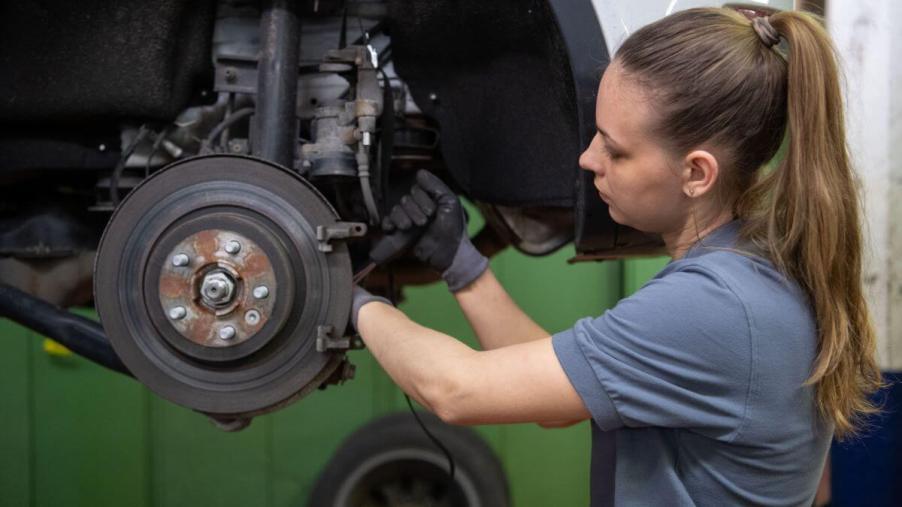
6 Spicy Bits of Secret Automotive Lingo Your Mechanic Doesn’t Want You to Know
I like to drive classic cars and trucks, so I spend a fair amount of time at the mechanic. I’ve been lucky to always have helpful, honest mechanics who were invested in keeping my business long-term. But every industry has its slick operators. Here are six car terms that will make a less-than-honest mechanic quake in their oily boots.
#6 – Tire date code
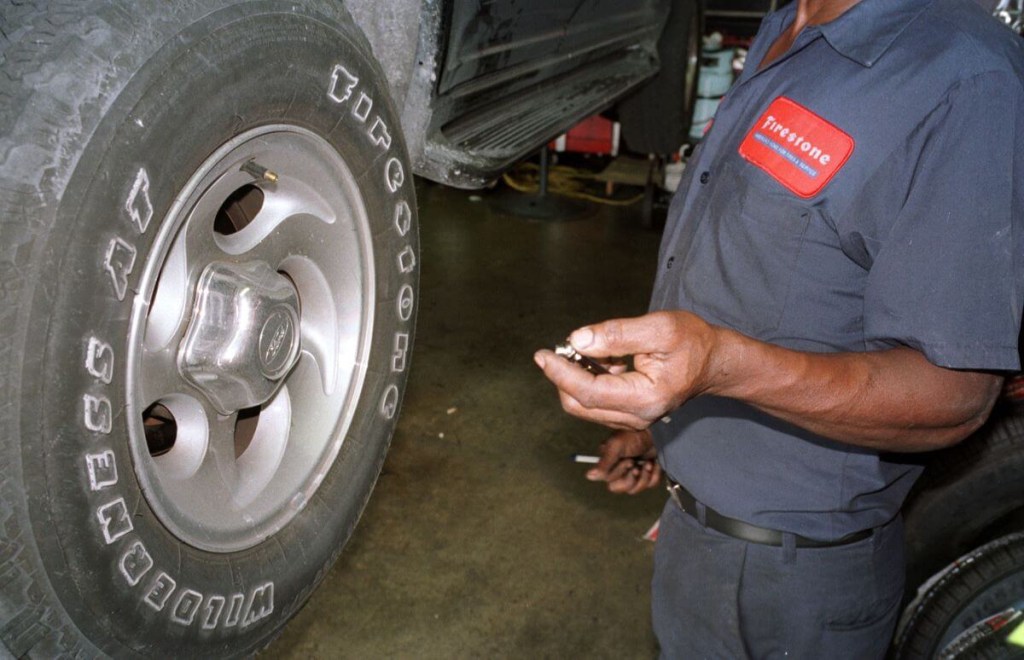
If your mechanic offers you a deal on “new” tires that seems too good to be true, beware. Tires expire even when sitting on the shelf. Why? Because rubber breaks down over time. Most experts agree that a six-year-old tire–even if it still has perfect tread–is just too old to be safe. Many shops won’t even mount a 10-year-old tire on your car. But if a dishonorable mechanic has a set of aging tires they’ve been unable to sell, they might try to pawn them off on you. If they say there’s no way to tell how old the tires are, be even more suspicious. Every tire has a “date code.” The tire date code format varies by manufacturer. But this car term often refers to a string of numbers representing the year and month the tire was made.
#5 – Filled-for-life
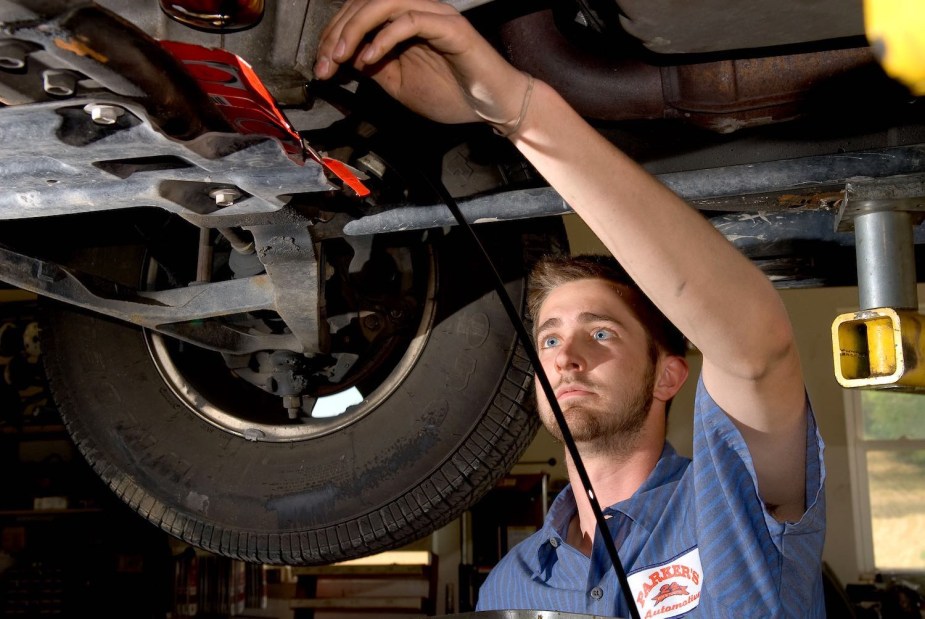
This car term is a bit more controversial. Some manufacturers claim that their transmissions are so well engineered, and their transmission fluid so high quality, that you will never need to change it. Certain experts disagree. One example is the current Ram 1500, which the automaker claims has an eight-speed automatic transmission that is “filled-for-life.” But the transmission manufacturer (ZF) recommends you change the fluid around 100,000 miles. Readers’ Digest points out that whether or not your transmission is “filled-for-life,” the constant “transmission flushes” (along with “coolant flushes” and “brake fluid flushes”) that certain shops push every time you bring your vehicle in are entirely superfluous. You should only need to change these fluids once in your vehicle’s lifespan–if ever.
#4 – Brand name parts
This is not a highly technical car term, but something not everyone thinks to ask about. The auto parts market is flooded with knockoffs that may break just a few miles down the road. It is well within your rights to request brand-name parts. You can even ask to see the box to confirm you got what you paid for. If you really don’t trust your mechanic, ask for the old parts they took off the vehicle to make certain they actually swapped them out.
#3 – Double labor
A fast-talking mechanic may charge you “double labor.” They would do this by recommending two related procedures, then charging you full price for both. Many shops–dealerships especially–give you a quote for a job based on how much time that specific procedure takes on average. But doing two related jobs simultaneously is a good way to save time, and a way for an honest private mechanic to save you some money. But if you don’t trust your mechanic, go over your bill and make certain they are charging you actual labor hours, not the maximum number of hours the job could have taken.
#2 – Signed work order
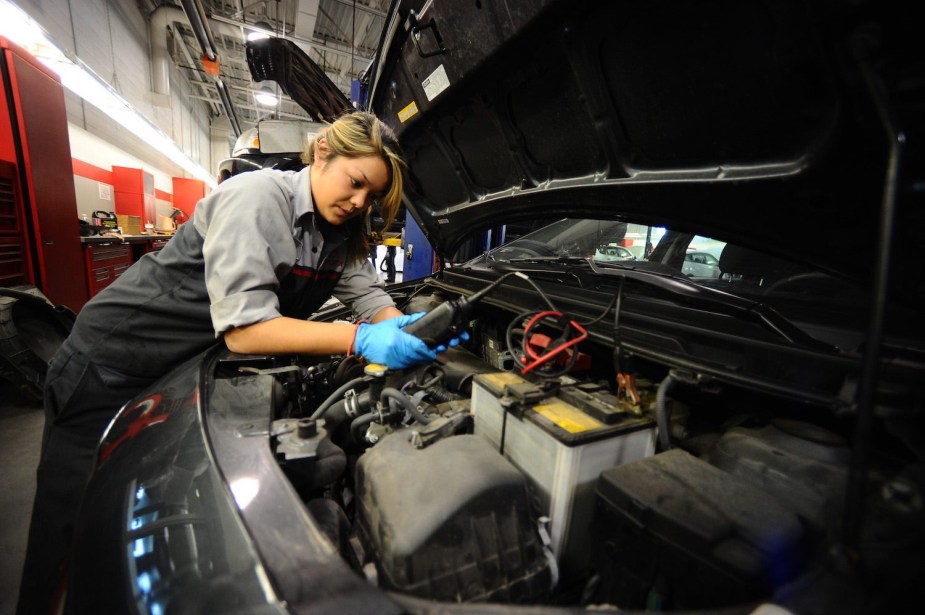
One way to avoid the “double labor” situation is to agree on exactly what you want your mechanic to do, then insist on writing up a “signed work order” which authorizes them to do that–and only that. Some mechanics may push for you to sign a blank work order, but this is a bad idea if you don’t trust them completely.
#1 – English please?
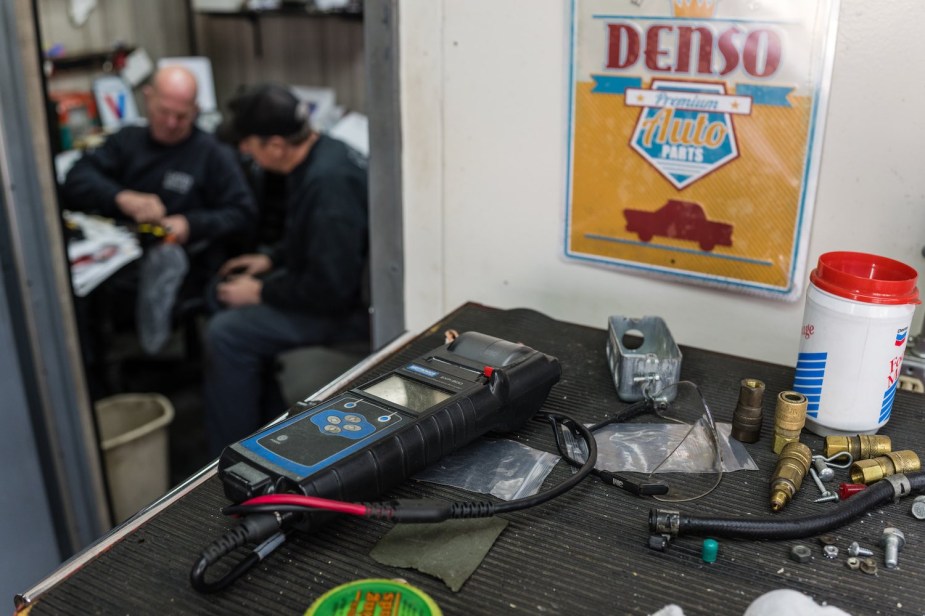
If your mechanic is rattling off car term jargon you don’t understand, you can always ask them to repeat themselves in “plain English.” Don’t be embarrassed that you don’t know the ins and outs of your car, that isn’t your job. But don’t let your mechanic use a bunch of technical mumbo-jumbo to confuse you into overspending.
Next, find out car hacks to repair your car with household items or learn more secrets your mechanic might not want you to know, in the video below:




